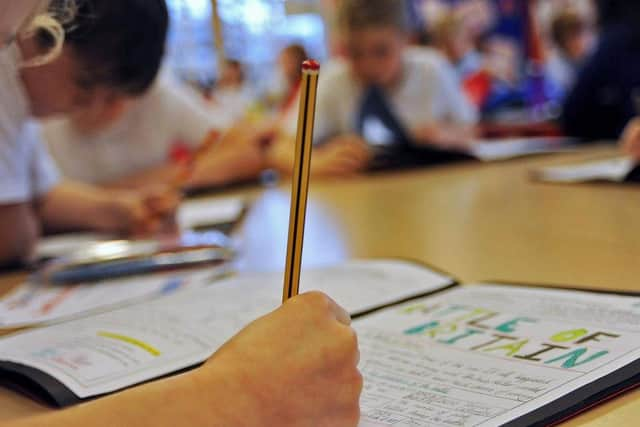Fewer children are being expelled from school as Doncaster drops national exclusion hotspot title
and live on Freeview channel 276
During the 2018/2019 academic year, there were 542 primary school children excluded from school but latest figures show this has fallen to 182.
The 66 per cent reduction in exclusions has also meant a fall in the nationwide league table. Doncaster now sits 77th in the country – an improvement of 17 places.
Advertisement
Hide AdAdvertisement
Hide AdSecondary fixed term exclusions have also been reduced also, from 5,855 in 2018/19 to 2,945 in 2020/2021. A decrease of around 50 per cent.


Historically, Doncaster has had one of the highest exclusion rates in the country in line with places like Blackpool and Middlesbrough.
Just five years ago, Government data showed 50 children were excluded from Doncaster schools on every school day during the 2016/2017 academic year.
Schools in Doncaster handed out at least 9,707 exclusions, according to data from the Department for Education during 2016/2017.
Advertisement
Hide AdAdvertisement
Hide AdThis was the equivalent of 20 exclusions for every 100 pupils, the highest rate in the country at the time.
Pupils excluded from school at age 12 are four times as likely as other children to be jailed as adults, a recent study from the University of Edinburgh found.
But education bosses today said that strategies implemented some years ago are now paying dividends in driving down exclusions.
Sennette Wroot, senior policy and insight manager at Doncaster Council, said: “The team continues to have a strong focus in this area to make further improvements.
Advertisement
Hide AdAdvertisement
Hide Ad“This work includes our ‘Team around the School’ meetings, behaviour and wellbeing audits, continued sharing of strategies, and training around school culture and peer challenge and review through the secondary head teachers group.
“It is difficult to predict the likely impact of this due to the shifting challenges around child and family mental health during the pandemic but unofficial data is showing that these trends have continued to improve during the autumn term.”